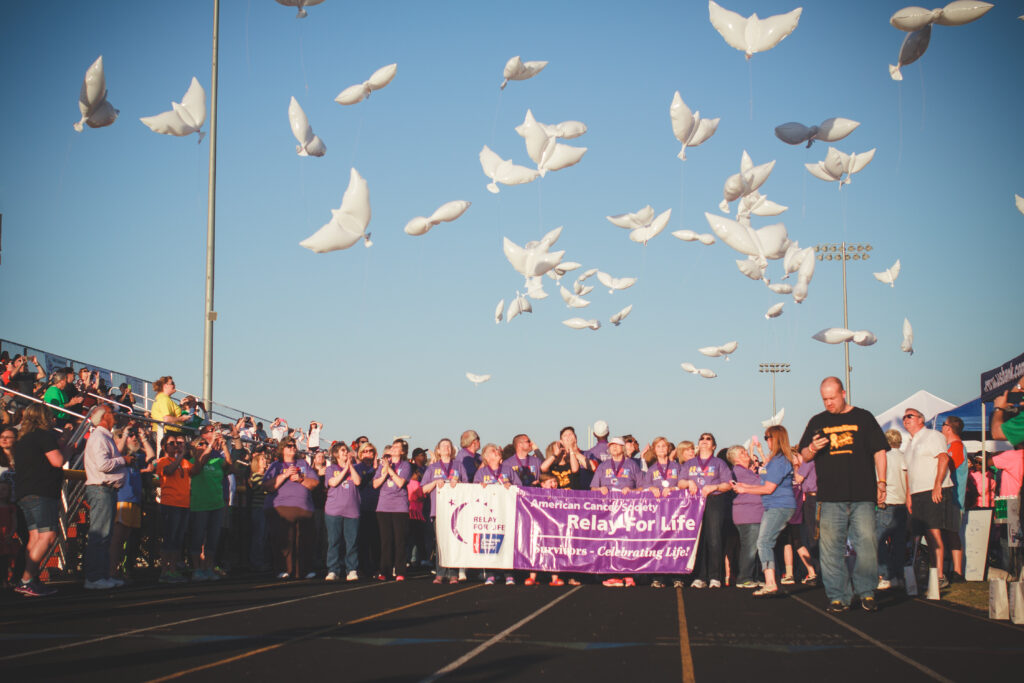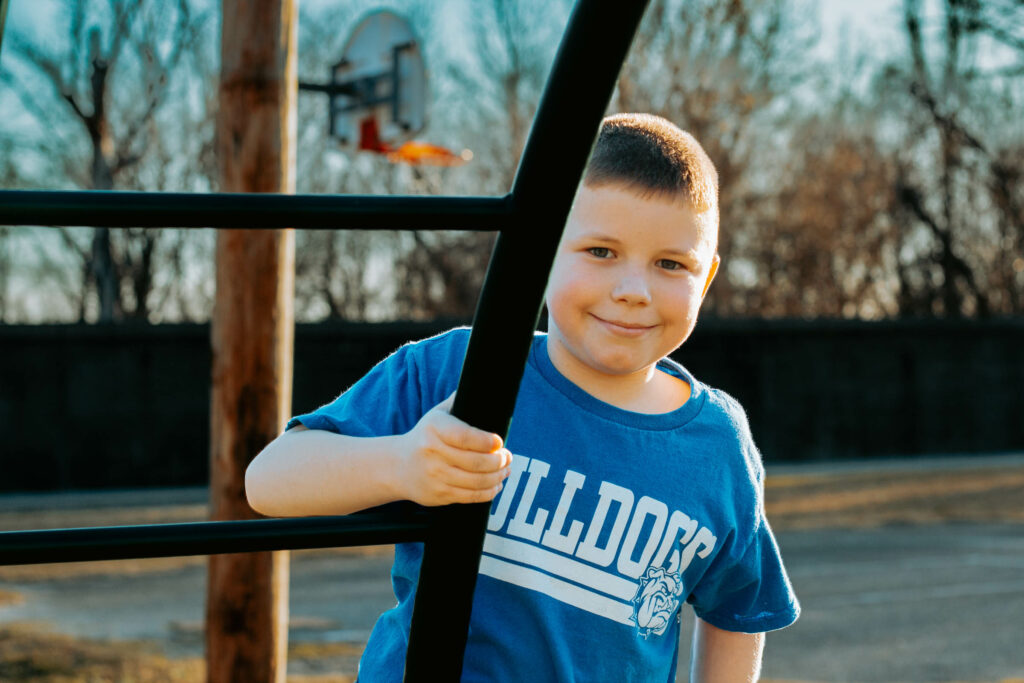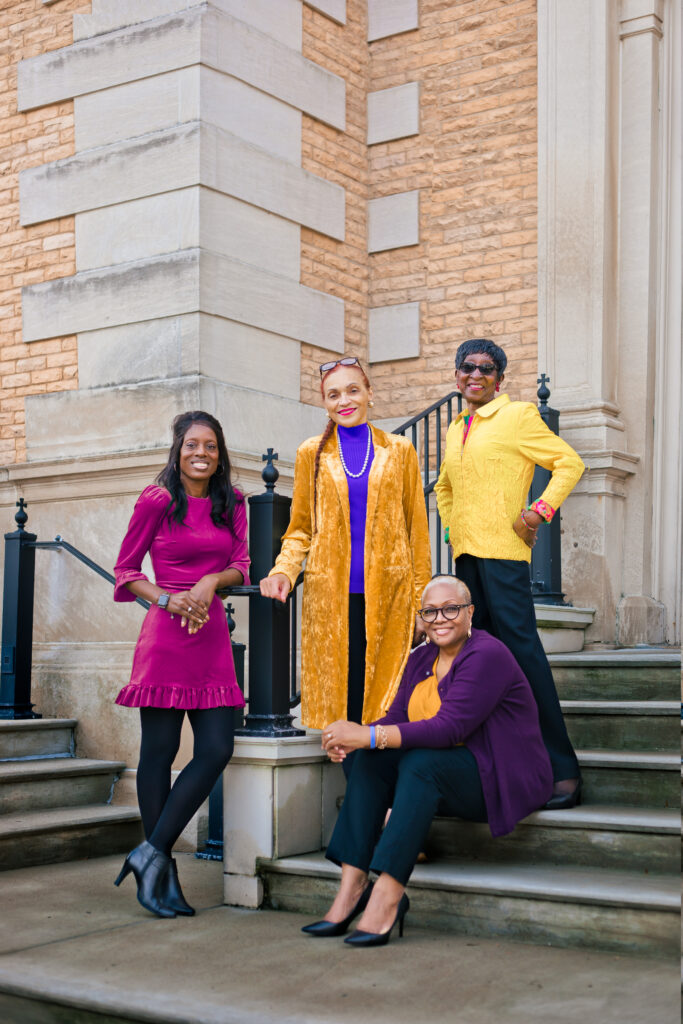Each year, more than 17,000 children in the United States are diagnosed with cancer. Every day, 47 children are diagnosed with cancer between the ages of 0-19 in the United States. September is National Childhood Cancer Awareness Month, and Kentucky has the highest cancer rates, according to Dr. Eric Durbin, the Kentucky State Cancer Registry Director.
“When you think about the statistics, picture grieving parents, siblings who don’t understand what’s happening, and children who can’t visit their friend in the hospital,” said Gaylon Hayden, President and Founder of Book for Hope, Inc. “Please see the stats as empty chairs in a classroom.”
One local girl has proven against the statistical odds, taking life back into her own hands, one day at a time.
In 2020, one headache changed the course of Emily Dulworth’s life. She describes herself as happy-go-lucky, enjoying life to the fullest, until headaches became more of a frequent thing in her life. Tylenol and Motrin weren’t getting rid of them like they usually did, so Dulworth’s mother thought it may have been the fact that she was on her phone so much.
Emily stayed in her room more often and wanted to be in the dark as often as possible, which led her mother to believe that she was depressed. With this belief, Emily and her mother went to the doctor to look into medication. Things got a little better, however, her headaches returned. With them, vomiting came – and her left eye crossed overnight.
“Now these headaches were different; it felt like a band around my head squeezing my head,” said Dulworth. “I had an upcoming eye appointment, so we started from there since I just got new eyeglasses.”
In September of 2020, Emily was at her eye appointment when the ophthalmologist noticed massive amounts of fluid behind her eyes, enlarged orbits, and fluid on her brain – just from the equipment they had in the office.
“They also noticed some spinal fluid trapped around the top of my head,” said Dulworth. “My primary doctor was notified before I left, and that’s when things got rolling.”
Emily was immediately sent to Baptist Health for an MRI of her head and spine. The news they received changed her and her family’s life forever.
‘Your daughter has a brain mass.’
“We were sent up to see the neurosurgeon at Baptist Health right then and there. Frightened and scared, I walked up there in my parents’ arms,” said Dulworth. “The doctor confirmed that I had a brain mass, which was consistent with medulloblastoma, which is brain cancer. We were all speechless, crying, with no words to say.”
Emily remembers asking the doctor if she could go home and get some things together, however, he told her she couldn’t leave the hospital because of the mass. Her parents decided to send her to Monroe Carell Children’s Hospital at Vanderbilt, and that night the intensive care ambulance from Vanderbilt came and got her from Baptist Health.
“My parents couldn’t ride with me in the ambulance, and I was even more scared. My mom followed us down there; from that moment on, I needed my mom and dad more than ever. We got there and they greeted us at the door,” said Dulworth.
There, she spent the night in the ER until they had a room for her in the PICU.
“I got there at 1 a.m. and it seemed like I was there for eternity. I was monitored for three days before my surgery on September 4,” said Dulworth.
For 10 hours, Emily underwent a craniotomy, a total resection of a brain mass with an external shunt placed due to the hydrocephalus. A tumor the size of an orange was discovered on her brain stem, which took four hours to get to the mass itself.
On September 8, her neurosurgeon and oncologist were brought into the room, giving the most devastating news Emily’s parents had ever received.
‘Your daughter has brain cancer, which is called medulloblastoma.’
“I remember my parents walking out of the room to talk to the doctor while nurses tried to console me. It seemed like an eternity that they were gone,” said Emily. “I remember my mom holding my hand and just talking to me until I asked what the doctors said. Tears flowed and she told me again what they said.”
That same day, Emily received physical, occupational, and speech therapies. She had to learn how to get up, sit on the side of the bed, and take her first steps after surgery.
“Things started looking up somewhat. My appetite was getting better, and Chick-fil-A never tasted so good to me, and water,” said Dulworth. “I ate just about anything that was in front of me.”
As her strength improved, Emily got up more and sat in the chair provided; her therapies became more accessible as the days and weeks went on. Her speech was also affected after the surgery, which left Emily unable to talk for two to three weeks. Along with this, her balance was also affected.
She spent two and a half weeks in the PICU before being transferred to a regular patient floor on September 18, followed by being discharged the next day.
“It was a tough transition, but I did okay,” said Emily.
On October 6, 2020, Emily went to Barnes Jewish Hospital to receive 30 rounds of proton radiation and six rounds of chemotherapy.
“I also had physical, occupational, and speech therapies every day. My mom and I got to come home on the weekends. We stayed up there during the week. Those were busy weeks and days for me with the radiation, chemo, and all my therapies,” said Dulworth. “I will say this, I tolerated the radiation and chemo well. I didn’t have any problems at all.”
On December 29, Emily found herself back at Vanderbilt and received her first in-patient admission, one out of nine cycles of chemo. Fast forward to February 10, Emily had an MRI and received the news after her chemo treatment that there was no evidence of the disease.
While Emily’s story is one of victory and strength, many others do not end in celebration of defeating the illness.
“Unfortunately, in the United States, childhood cancer is on the rise and the number one disease-related cause of death among children,” said Hayden. “Cancer affects all ethnic, gender, and socio-economic groups.”
On average, pediatric clinical trials begin six and a half years after adult trials. Children and adolescents diagnosed with cancer must take outdated treatments or treatments that were developed for adults.
“It’s time people realize children are not small adults. Would you dare give your small child adult Tylenol? No, you would give them Children’s Tylenol,” said Hayden. “Our hearts break for children that must take the adult chemotherapy drug, Doxorubicin (Adriamycin). It is referred to as Red Devil by adults and Red Kool-Aid by children.”
There are only six specifically FDA-approved cancer treatments for children between the ages of birth and 19-years-old.
“There are other options, but these are adult cancer treatments and trials. Children and adolescents endure cancer treatments as far back as the sixties. Most everyone remembers Neil Armstrong, the first man that stepped onto the Moon’s surface in July 1969,” said Hayden. “Neil Armstrong’s daughter, Karen Anne Armstrong, had Diffuse Intrinsic Pontine Glioma (DIPG), an inoperable brain tumor with less than 1% survival rate and a type of cancer that rarely happens in adults.”
DIPG is the leading cause of death from brain tumors in children. Brain cancer has replaced leukemia as the leading cause of cancer death among children.
“At this time in 2022, we are no farther along with the treatment for DIPG as we were when Neil Armstrong’s daughter, Karen, passed away from this beast on January 28, 1962,” said Hayden.
Hayden’s non-profit, Book of Hope, is a 501(c)(3), childhood cancer organization with a mission to raise childhood cancer awareness, financially support families with a child on cancer treatment in Western Kentucky and Southern Illinois, and donate to childhood cancer research. Book for Hope operates with an unpaid Board of Directors and Officers and is a local grassroots organization familiar with the families they support.
“One of the ways we raise childhood cancer awareness is by involving our community to raise money to help families with a child on cancer treatment during this difficult time. Presently, we have served 48 families with a child in cancer treatment. Our financial assistance includes fuel cards, restaurant cards, and pre-loaded visa cards. Book for Hope also pays one monthly bill for a childhood cancer family if the child is actively on cancer treatment.”
In addition, the organization pays for utility bills, car payments, house/rent payments, car insurance, car repairs, and many other things. Unfortunately, children in the area cannot receive local treatment for cancer, and travel will become a way of life that requires hotel stays. Therefore, regardless of where a child gets cancer treatment, there are bills at home not covered by insurance that continue to come in every month. Also, after a parent has exhausted the twelve weeks of the Family Medical Leave Act (FMLA), most of them will lose their job.
The Book for Hope families were part of a group that helped to bring real faces to our great state of Kentucky legislation. This act helped Kentucky be the first state to ever give money to childhood cancer research.
“This all happened when a dear friend found out that billions of dollars were given to adult cancer research; she quickly jumped on this to get a portion for childhood cancer,” said Hayden.
Hayden informs that the federal government designates the donated money to the federal agency known as the National Institute of Health (NIH), giving it to the National Cancer Institute (NCI). Unfortunately, only 4% of funds go to childhood cancer research and 96% to adult cancer research.
“We believe children are worth more than 4% of cancer research funding,” said Hayden.
In efforts to fundraise for funding, Book of Hope holds events throughout the year to contribute to the cause.
“Book of Hope will host their 7th Annual Just Imagine® Childhood Cancer Walk on Saturday, September 10, 2022, on the track field at the McCracken County High School,” said Hayden. “The culmination of the Book for Hope fundraising campaign will be our 3rd Annual Dancing for Gold® on March 18, 2023, at the Paducah Convention Center. Dancing for Gold® 2023 will be a gala evening consisting of the dancing contest, raised donations, corporate sponsors, and sharing time with people.”
Hayden asks the community to consider the opportunities given to help families in the area survive childhood cancer.
And as for Emily, she has words of hope and courage for those in our area and beyond.
“I would like to say, always have faith, and never give up. The world still turns even when life throws you a curveball. Hold on to your dreams and keep moving forward,” said Dulworth. “Don’t look back at yesterday; look for tomorrow and what the future holds for you. Never ever give up.”






